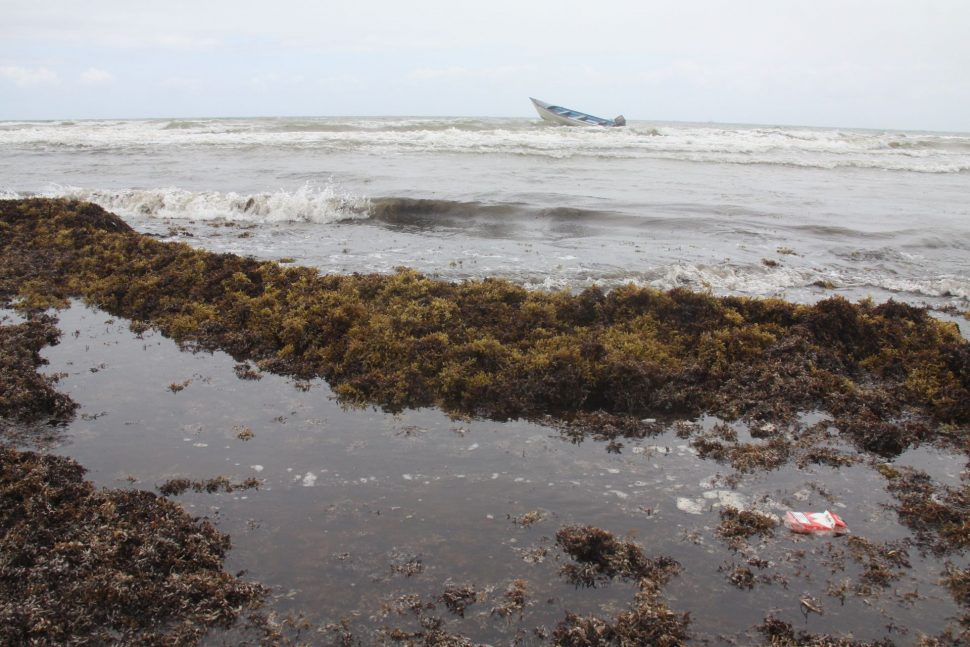(Trinidad Guardian) Fishermen in the southwestern peninsula say massive quantities of sargassum seaweed is hampering their ability to fish.
The seaweed is so bad that some fishermen have anchored their boats and have not ventured out to the ocean in over three weeks.
When Guardian Media visited the area on Wednesday, the foul-smelling weeds lined the Icacos beach where dozens of boats were anchored.
President of the Icacos United Fishermen Association Gary Edwards said as many as 800 fishermen were affected.
Calling on the Ministry to clean the beach on a regular basis, Edwards said they could not even walk on the beach because of the weeds.
Fisherman Ramcharitar Massey said the weeds were now about three feet high on the beach.
“The tractors are sinking in the beach. It is very frustrating for us,” he added.
Ralph Gobin who has been fishing for 30 years said he cannot take the stress so he has parked up his boat.
“I also do electrical work and that is how I am earning a living these days,” he said.
Kimberly Rampersad who fish with her husband said it did not make any sense going out to sea.
“We have two children and things are very hard for us. We spend $500 for a container of gas and when we go out there all we are catching are weeds. We have to spend all day cleaning the nets. The seaweed is chasing away the fish,” she said.
Boat captain Danny Edwards said they could no longer go far out to sea as the Guardia Nacional and Venezuelan pirates were taking them captive.
“We have to work closer to the shore and even so it is dangerous for us. I was kidnapped and held for ransom so I will not take any chances to go further out. I have no choice but to fish near the shore,” he said.
Councillor for the area Shankar Teelucksingh said the Siparia Regional Corporation has been working to clear parts of the beach.
He said the fishermen who harvest shrimp were also badly affected. Teelucksingh said he was hopeful that the Government could find a way to process the seaweed and use it as a fertilizer. He said several loads of weeds have already been moved from the shore.
“This is an ongoing process. We continue to work with them to clear the beachfront. It is very polluted. We continue to spray the area for insects and to work towards alleviating the stench caused by the rotting seaweed,” he said. Teelucksingh said masses of the sargassum floats from the Orinoco River and bring with it animals and other organisms.
What is Sargassum seaweed?
Sargassum is a brown algae and the ‘grapes’ are the air bladders, which keep it afloat. It may look like the attached marine plants found in coastal waters, but it is found in the middle of the North Atlantic Gyre. The area, of about two million square miles, is known as the Sargasso Sea.





